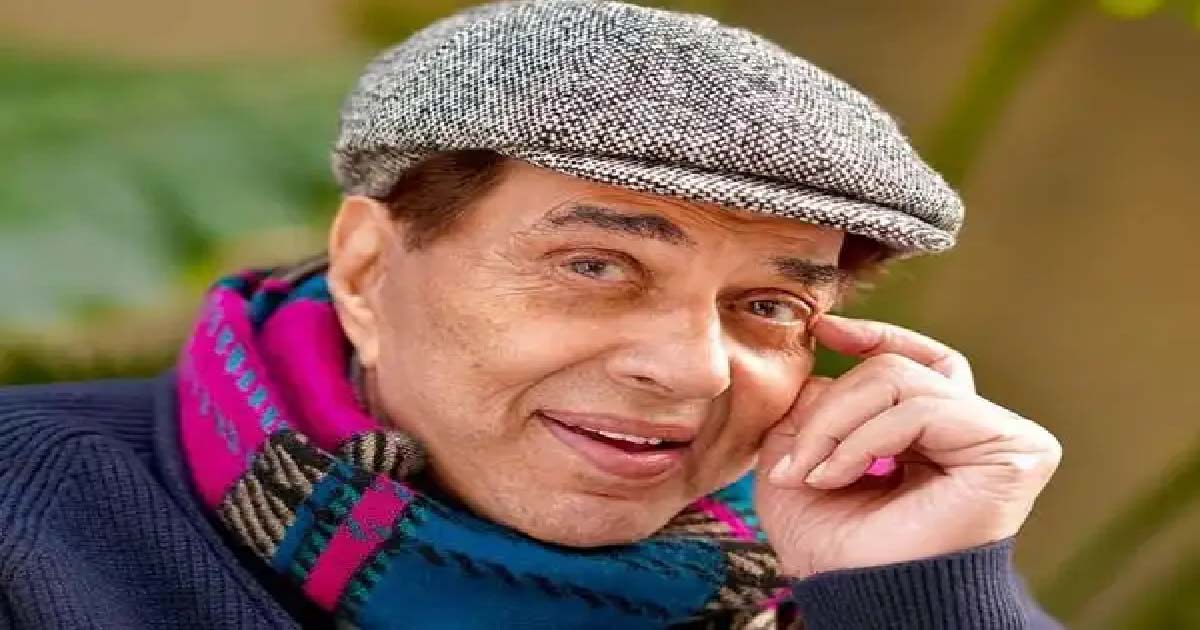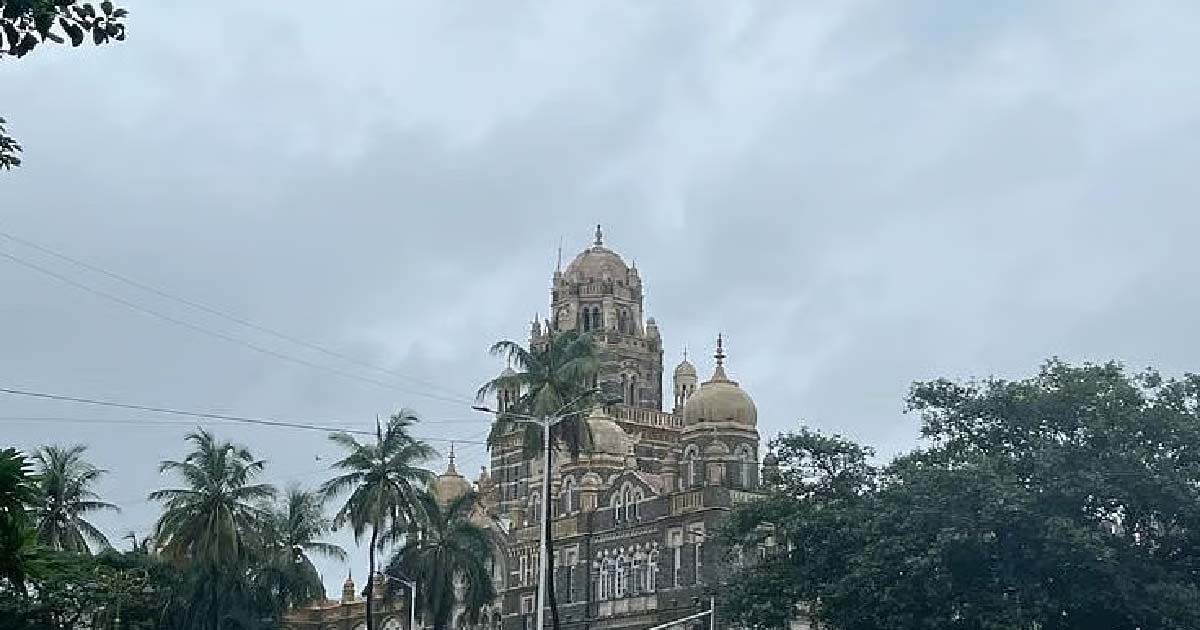Maharashtra
The first digital school was established in Bhiwandi with government funds through the efforts of MLA Rais Shaikh

Inauguration ceremony of redeveloped 22/62 school for girls at Gabi Nagar tomorrow
Transforming a school in a dangerous building into a well-equipped and beautiful school
1920 students will continue to strive to carry forward the movement ‘Padhega Bhiwandi, Badhega Bhiwandi’ – MLA Sheikh
Mumbai: The inauguration ceremony of the school number 22/62 at Gabi Nagar, Bhiwandi, which has been redeveloped with government funds through the efforts of Samajwadi Party MLA Rais Shaikh, has been organized tomorrow on September 4, 2024. This dilapidated Municipal Corporation’s Urdu school for girls, which was declared a dangerous building, has now been converted into a well-equipped and the first digital school in the district.
In this regard today, MLA Raees Shaikh held a press conference and gave detailed information about it. Deputy Commissioner of Municipal Corporation Prakash Rathod, Principal of School No. 62 Praveen Shamin Sheikh, Principal of School No. 22 Rubina Faizan Ahmed, Teacher Sheikh Naba Hurer and other dignitaries attended this press conference.
Speaking on the occasion, MLA Sheikh said that this is a redeveloped Urdu school. But the non-Muslim students of this school who studied through Urdu medium are doctors, engineers today. There is a huge lack of educational infrastructure in Bhiwandi. So we have taken up a movement called ‘Padhega Bhiwandi, Badhega Bhiwandi’. MLA Sheikh said that this historical school has been changed.
The school was built by spending 9 crores
The school building was constructed by the then Bhiwandi Municipality in 1991. The building was declared endangered in 2017. Many people tried to redevelop this school. Finally, with the efforts of Samajwadi Party’s local MLA Rais Sheikh, it has been transformed into a well-equipped and digital school with government funds. As much as 9 crores has been spent on the redevelopment of the school.
Innovative Digital School – Deputy Commissioner Prakash Rathore
Speaking on the occasion, Deputy Commissioner Prakash Rathod said that this is an innovative digital school. Due to this, students here will get high quality education. This will make the name of the Municipal Corporation bigger along with the students, Rathod said.
Girls’ Urdu School up to Class IX, 1920 student capacity
Schools numbered 22 and 62 of the Municipal Corporation are combined here. This is an Urdu school for girls from class I to IX. This four-storey school has 28 thousand sq. There is a foot construction. The building has facilities like assembly hall, sports turf, laboratory, library, toilet on every floor and CCTVs have been installed. There are 24 class rooms and the student capacity of the school is 1920.
1957 The school was started in a room privately owned by Pir Muhammad Garkab. In 1965, this school was shifted to the side of Aulia Masjid.
Maharashtra
Tension at Vashi Naka in Mumbai over the replacement of the Kali Mata idol with Mount Mary; case filed, priest arrested after protests by Bajrang Dal and Vishwa Hindu Parishad activists

Mumbai: The idol of Kali Mata in the crematorium of Chembur Vashi village was changed into the shape of Mount Mary, after which tension spread in the area, but the police have claimed to have arrested a priest in this matter, who had done the above act, which had hurt the religious sentiments of Hindus. The police brought the situation under control and also solved the case. After this incident, an attempt was made to spoil the atmosphere, but later the priest was found to be involved in it, after which peace has now prevailed here. A shocking incident has come to light in Mumbai, in which the idol of Kali Mata installed in the crematorium of Chembur Vashi village was redesigned to resemble Mount Mary. This incident has caused a wave of shock and anger among the residents of the area.
On receiving the information, the RCF police reached the spot, assessed the situation and arrested the priest involved. The police have also registered an FIR in connection with the incident.
During initial interrogation, the accused priest told the police that he had received a “dream instruction” to redesign the idol of Kali Mata to resemble Mount Mary. Following this alleged “dream instruction”, he tried to change the shape of the idol.
Given the seriousness of the matter, police officers are conducting further investigations. The motives behind the change, and whether there was any other reason or conflict behind the change, are also under investigation.
Local people and some Bajrang Dal workers expressed satisfaction with the police action and said that any kind of change without permission at religious places is unacceptable. DCP Sameer Shaikh said that the accused who changed the shape of the idol has been arrested and the investigation is ongoing. The police are also investigating why the accused committed such a questionable and controversial act, who is behind it, and on whose instructions he changed the shape of the idol. Investigations are ongoing on all these points. However, due to the situation, the police have deployed additional arrangements here and the situation is also being monitored. At present, there is peace but tension remains.
Maharashtra
Veteran Bollywood Actor Dharmendra Passes Away at 89

Mumbai: Veteran Bollywood legend Dharmendra, fondly known as the “He-Man” of Indian cinema, passed away today at his residence in Mumbai at the age of 89. His departure marks the end of an era in Hindi film history, leaving behind millions of grieving fans and admirers.
Dharmendra had been unwell for the past several days. He faced respiratory complications and other age-related health issues, for which he was hospitalized briefly before being shifted back home. Earlier today, a sense of concern arose as activity increased outside his residence, and soon after, the heartbreaking news of his demise was confirmed.
With a career spanning more than six decades, Dharmendra made his debut in the early 1960s and went on to become one of the most admired and celebrated actors of Indian cinema. From romance to comedy, drama to action, he mastered every genre and delivered countless memorable performances. His screen presence, charm, and natural acting style earned him a permanent place in the hearts of audiences.
The film industry is in deep mourning. Actors, filmmakers, and fans across the country are paying tribute, remembering him as a powerhouse performer and a humble human being. Many are calling his passing “the end of an era,” acknowledging that his contribution to cinema is both historic and irreplaceable.
Beyond films, Dharmendra was a devoted family man—deeply connected with his children, grandchildren, and loved ones. His simplicity, warmth, and affectionate nature made him beloved not just onscreen but also in his personal life.
His passing leaves a void that cannot be filled. Yet, his legacy will continue to shine through his timeless films, unforgettable characters, and the memories he gifted to generations of viewers.
We extend our heartfelt condolences to his family and pray that his soul rests in peace.
Maharashtra
Winter rains expected in the state, alert issued in three districts

Mumbai: The weather in the state is constantly changing. Now after the severe cold, the Indian Meteorological Department has given a major warning of direct rain. The state is currently facing favorable weather for rain.
The state has been experiencing cold and temperature in the last few days. The mercury is continuously falling. Pune is experiencing severe cold, Punekar is facing pink cold due to the drop in temperature. Not only Pune, many parts of the state are experiencing severe cold and cold winds are blowing from the north. North India is experiencing severe cold and the mercury is likely to fall further in the next few days. However, the cold has decreased slightly since yesterday. The mercury is falling in the districts of Mumbai, Nagpur, Akola, Solapur, Chhatrapati Sambhaji Nagar, Beed, Nanded, Parbhani, Hingoli, Ahlia Nagar, Gadchiroli, Gondia, Jalgaon, Bhandara, Ayutthaya. The mercury in Dhule fell to 7.5 Celsius. The Indian Meteorological Department has now issued a big warning.
Although the cold is being felt at the moment, the cold has decreased in some areas compared to the last two or three days. Not only this, the weather is also cloudy. Currently, the environment is favorable for rain in the state. The Indian Meteorological Department has also issued a rain warning in some districts. Rain warnings have been issued in Kolhapur, Sangli and Sindhudurg districts.
The mercury is below 10 degrees in some places. On Friday, the lowest temperature in the state was recorded in Dhule. The temperature was recorded in Dhule at 7.5 degrees. The temperature was recorded in Parbhani at 8.9. The temperature was recorded in Nafad at 8 degrees Celsius. The mercury dropped to 11 degrees in Pune, Ahlia Nagar and Mahabaleshwar. Today, the weather is favorable for rain in some cities of the state. There will be light to moderate rain in Kolhapur, Sangli and Sindhudurg.
The mercury has dropped below 10 degrees in Pune. Due to which there is a heavy fog in the air. To avoid the cold, Ganpati Bappa is traditionally dressed in a woolen sweater and ear caps at Saras Bagh in Pune. This sweater is given to Ganpati Bappa with the pleasant feeling that Ganpati Bappa is also feeling the cold. Every winter, whenever the cold increases, Ganpati Bappa is given a sweater.
-

 Crime3 years ago
Crime3 years agoClass 10 student jumps to death in Jaipur
-

 Maharashtra1 year ago
Maharashtra1 year agoMumbai Local Train Update: Central Railway’s New Timetable Comes Into Effect; Check Full List Of Revised Timings & Stations
-

 Maharashtra1 year ago
Maharashtra1 year agoMumbai To Go Toll-Free Tonight! Maharashtra Govt Announces Complete Toll Waiver For Light Motor Vehicles At All 5 Entry Points Of City
-

 Maharashtra1 year ago
Maharashtra1 year agoFalse photo of Imtiaz Jaleel’s rally, exposing the fooling conspiracy
-

 National News1 year ago
National News1 year agoMinistry of Railways rolls out Special Drive 4.0 with focus on digitisation, cleanliness, inclusiveness and grievance redressal
-

 Maharashtra1 year ago
Maharashtra1 year agoMaharashtra Elections 2024: Mumbai Metro & BEST Services Extended Till Midnight On Voting Day
-

 National News1 year ago
National News1 year agoJ&K: 4 Jawans Killed, 28 Injured After Bus Carrying BSF Personnel For Poll Duty Falls Into Gorge In Budgam; Terrifying Visuals Surface
-

 Crime1 year ago
Crime1 year agoBaba Siddique Murder: Mumbai Police Unable To Get Lawrence Bishnoi Custody Due To Home Ministry Order, Says Report












